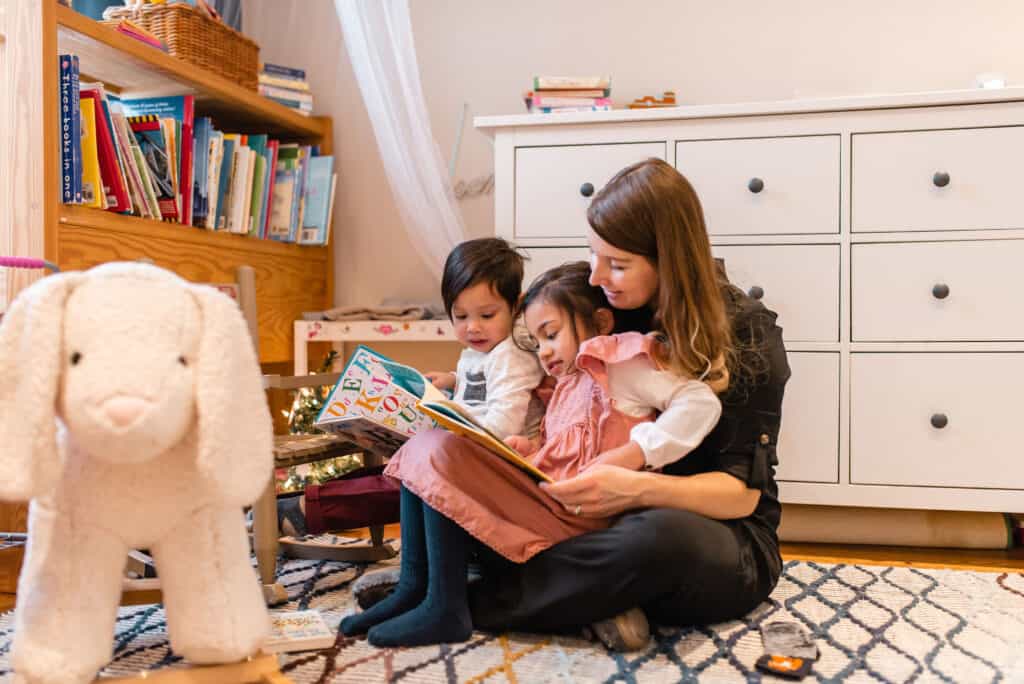How to Manage Visitors During the Postpartum Period

How to Manage Visitors During the Postpartum Period
Welcoming a new baby into your life is joyful, life-changing—and, let’s be honest—completely exhausting. As you recover from childbirth and get to know your newborn, the last thing you need is a revolving door of visitors disrupting your healing and rest. But how do you manage visitors during the postpartum period without offending loved ones?
This guide will walk you through practical strategies for balancing social support with privacy. Whether you’re a new parent or supporting one, these tips will help you create a calm, respectful environment that protects your recovery time and strengthens your family bond.
Why the Postpartum Period Is So Delicate
The postpartum period, also called the fourth trimester, is a time of intense physical and emotional change. Your body is healing. Hormones are fluctuating. You’re learning to feed, soothe, and care for a brand-new human. Sleep deprivation becomes real. Emotions may swing from joyful to overwhelmed in minutes.
During this time, well-meaning visitors may want to help or simply meet the baby—but their presence can unintentionally add stress. That’s why learning to manage visitors during the postpartum period is essential. Boundaries aren’t about shutting people out—they’re about protecting what matters most: your healing and bonding time.
Set Expectations Before Baby Arrives
One of the best ways to manage visitors during the postpartum period is to set expectations before you give birth. Here are some proactive steps:
1. Make a Visitor Policy Together
Talk with your partner about your comfort levels. Do you want visitors right away? Would you prefer a quiet week or two to yourselves? Agree on guidelines and stick to them as a team.
2. Share Your Plan with Family and Friends
Once you have a visitor plan, share it with close loved ones in a friendly, respectful way. You might say, “We’re so excited for you to meet the baby! We’ll be limiting visits in the first two weeks to focus on rest and bonding, but we’ll be in touch when we’re ready.”
3. Include Your Doula or Support Person
If you’re working with a postpartum doula, they can help reinforce boundaries. Doulas often serve as a gentle buffer and advocate for your rest, especially when visitors overstay their welcome.
In addition to discussing boundaries with your partner, consider writing them down. A simple shared note on your phones can be helpful, especially when baby brain hits. You can list who’s welcome during the first few weeks, preferred visiting hours, and any “do not disturb” days.
Pro tip: If you’re having a baby shower, include a short note in your thank-you message like, “We can’t wait for you to meet the baby! We’ll be taking a little time to rest and adjust in the early days, but we’ll reach out when we’re ready.” That way, guests are gently prepped in advance.
Creating a Calm and Respectful Visitor Policy
Here are practical ways to manage visitors once the baby is here:
1. Use a “By Invitation Only” Rule
Instead of leaving the door open for drop-ins, let people know that visits are by invitation only. This helps avoid surprise guests when you’re in the middle of a nap or breastfeeding.
2. Set Time Limits for Visits
Keep visits short and sweet—30 to 60 minutes max. You can say, “We’d love to see you, but we’re keeping visits short so we can rest.” Most people understand and appreciate the honesty.
3. Designate Visiting Hours
If you’re open to visitors, pick one or two blocks of time per day when you’re most rested. That way, you have control over your day and can avoid the stress of entertaining.
How to Say No Without the Guilt
Many new parents feel guilty turning people away. But here’s the truth: your job isn’t to please guests—it’s to protect your recovery and care for your baby.
Try these gentle phrases when you need to say no:
- “We’re taking time to settle in as a family. Can we connect next week?”
- “We’re not up for visits yet, but we’ll share photos soon!”
- “We’re limiting guests for now, but we appreciate your support.”
If someone pushes back, stay firm. You’re doing the right thing.
It’s okay to feel torn—many of us were raised to believe that being a good host means saying yes to everyone. But here’s a mindset shift: You’re not hosting a dinner party; you’re recovering from childbirth and adjusting to a brand-new life.
If guilt creeps in, ask yourself: “Is this visit going to add energy to my day or drain it?” If the answer is the latter, it’s perfectly reasonable to postpone or decline. You can be both kind and firm.
Ways Visitors Can Actually Help
If you do choose to welcome visitors, give them a job! Many people want to help—they just need direction.
Here are things guests can do that are actually helpful:
- Fold laundry
- Walk the dog
- Bring a hot meal
- Hold the baby only if you’re okay with it
- Run an errand
- Wash dishes or bottles
Letting guests help can lighten your load and make them feel useful. But remember—you’re never obligated to entertain.
Signs You Might Need to Hit Pause on Visitors
Sometimes, even well-planned visits can start to feel overwhelming. Here are signs it’s time to pause:
- You’re more anxious or irritable after a visit
- Your baby gets overstimulated
- You’re falling behind on sleep or healing
- You feel like you’re hosting, not recovering
If any of these ring true, it’s okay to reset your boundaries. You can always revisit them later.
Tips for Managing Virtual Visitors
In today’s digital age, FaceTime and Zoom calls are the new front door. And while virtual visits are lower-impact, they can still feel draining.
Here’s how to keep them manageable:
- Limit screen time to a few short calls a week
- Let friends know you might have to hop off suddenly
- Use headphones if baby is sleeping nearby
- Don’t feel obligated to respond to every text or DM
Just because it’s virtual doesn’t mean it’s not tiring. Your time and energy are still valuable.
You might also consider designating a “digital communication window.” Maybe 5–6 p.m. is when you check in with texts, return missed FaceTime calls, and share photos. That way, your phone isn’t buzzing all day, and loved ones still feel included.
Bonus idea: Create a private photo album on Google Photos or Tinybeans to keep family updated. It keeps your inbox clear and avoids the pressure of crafting personalized responses to every message.
When You Have a Big Family (or Pushy Friends)
Navigating strong personalities can be tricky. If you have a big family or a friend who doesn’t take hints, here’s how to keep the peace:
- Ask a partner or close friend to be your gatekeeper
- Blame the pediatrician: “Our doctor advised limited visits early on.”
- Use group texts or emails to update everyone at once
- Schedule a meet-the-baby open house when you’re ready
It’s okay to prioritize your needs—even when it’s uncomfortable. Setting boundaries now prevents resentment later.
In some cultures and families, it’s normal for relatives to show up unannounced—or expect to stay for days. If this applies to you, consider assigning a family liaison. This person (often a sibling or trusted friend) can help relay boundaries and manage expectations without you having to repeat yourself.
Also, consider using technology to your advantage. A shared Google Calendar can show available visiting times—or blackout days. A group message thread can help keep everyone updated on baby’s progress while minimizing individual check-ins that add up fast.
Your Home, Your Rules
Think of your postpartum space as sacred. Just like a hospital has visitor policies, your home can too. Post a cute sign on the door that says, “Resting—thanks for checking in!” or “Newborn in progress: Quiet and short visits only, please.”
And if you change your mind? That’s okay too. Flexibility is key. Some days you may want company, and other days you won’t. Trust your instincts.
Don’t Forget: You’re Allowed to Rest
This season isn’t about performance or perfection. It’s about healing, adjusting, and bonding with your baby. Every family is different, and there’s no one-size-fits-all approach.
Whether you prefer a quiet home or a rotating support squad, managing visitors during the postpartum period is about creating space for what you need most.
Final Thoughts
Managing visitors during the postpartum period doesn’t mean isolating yourself—it means protecting your time, your healing, and your family’s well-being. With clear communication and a little planning, you can welcome support without sacrificing your sanity.
Need more guidance or hands-on support? Our team of certified postpartum doulas is here to help you navigate this new chapter with confidence. Explore our resources or reach out to connect—we’d love to support your journey.
Thank you for reading this week’s blog post, “How to Manage Visitors During the Postpartum Period” For more helpful tips and tricks on all things pregnancy, postpartum, and parenthood, click here!

